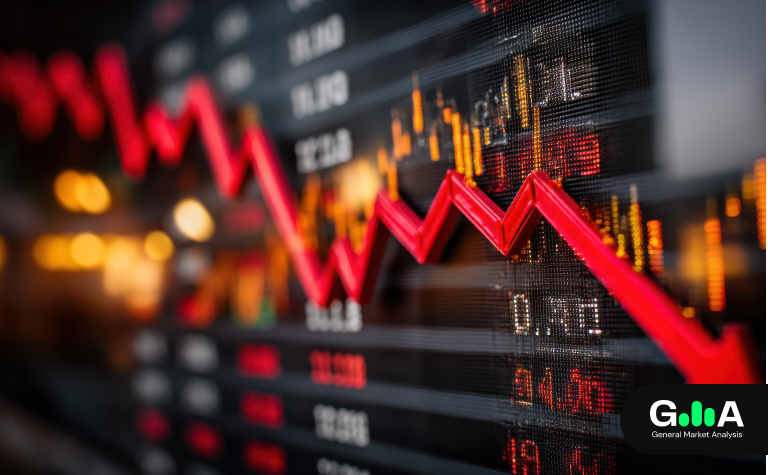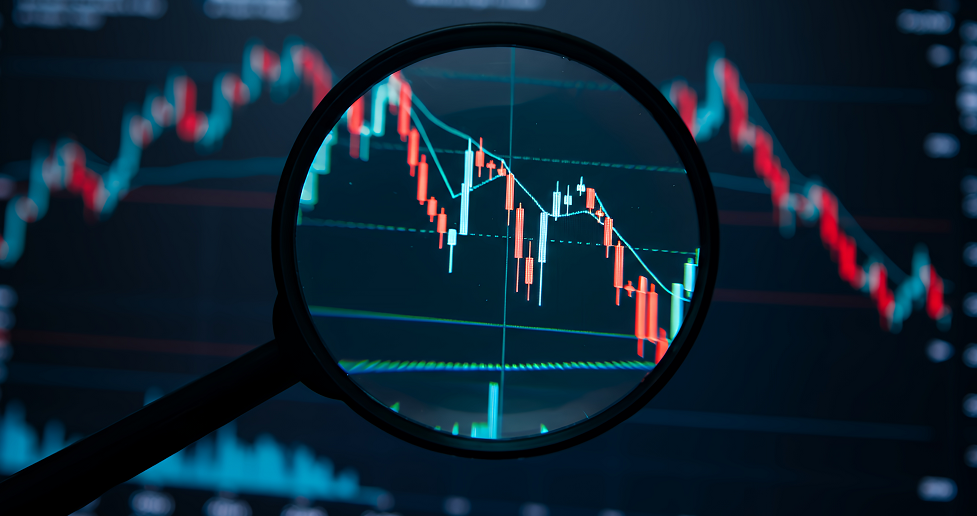Over the years technology has revolutionised our world, creating irreplaceable tools and putting useful information at our fingertips. Thanks to these technological advances, it’s easier than ever before to participate in the financial markets.
Despite this, novice traders remain vulnerable to costly mistakes. While some trading mistakes are expected, it is vital you don’t make a habit of them.
To help condense the learning curve, the following piece will highlight five of the most common mistakes and underline some ways of avoiding them.
Letting emotions guide trading decisions
Learning to regulate psychological conflicts is as important as developing money-management principles, sound risk management and a well-defined trading strategy. Having all components function side by side is paramount to successful trading.
Unfortunately, trading psychology is often disregarded. Many traders mistakenly believe developing solid trading methodologies is all that’s required to profit. If you’re incapable of governing your mind while operating in the market, regardless of the trading strategy’s success rate, the odds of becoming profitable is exceedingly low.
Following a string of losses, or not realising an expected profit, for example, can lead to an emotional backlash of hurried trades, typically not in line with the trading strategy. For that reason, trying to remain as objective as possible is vital.
Practices to help avoid emotional trading:
- Know when enough is enough – recognise when it’s time to step back. Suffering back-to-back losing trades affects even the best of us. This can trigger ‘revenge trading’, which is rarely favourable. Surprisingly, it is not only losers that affect a trader’s mindset, it’s also consecutive winning trades. This can make some feel supreme, even euphoric, sometimes leading to over leveraging and ultimately causing damage.
- Avoid watching your profit and loss value. To many traders, the profit and loss figure is an expression of their self-worth. Witnessing changes in value can cause an emotional rush, taking over and controlling decision making. So, it’s always best to conceal this value and focus on trading.
- Follow a trading strategy. Have a checklist you go through before entering any trade. When you see an opportunity, go through your checklist. You’ll see right away whether you should engage.
- Many recommend trading a demo account to gain experience in the market place, particularly for newer traders. This will help improve analytical skills, though is impossible to simulate the psychological elements of trading. The only way to achieve psychological exposure is allocating live funds. This is where the struggle generally begins and traders realise the importance of thinking in probabilities and how it helps to curb emotional trading.
Not thinking in probabilities
Trading effectively is about assessing probabilities, not certainties – Yvan Byeajee
Probabilistic thinking means to try and estimate the statistical expectancy of a method over a series of trades. For instance, over twenty trades using a strategy that boasts a win ratio of 40% will likely see 8 out of those 20 trades turn a profit. What is important, however, is the gain acquired on the winning trades and how much is lost on the losers.
Having a methodology that’s undergone thorough back testing will be easier to trade than a method that has no testing. By understanding the statistical expectancy, a loss, two losses or even three consecutive losses should not sway you from taking the next trade.
The late Mark Douglas, one of the greatest authors of trading psychology literature of our time, produced five fundamental truths of trading written in his book: Trading in The Zone (2000):
- Anything can happen.
- You don’t need to know what is going to happen next to make money.
- There is a random distribution between wins and losses for any given set of variables that define an edge.
- An edge is nothing more than an indication of a higher probability of one thing happening over another.
- Every moment in the market is unique.
Think in probabilities; do not look for certainty:
Humans are terrible at understanding probabilities. If a tossed coin comes up tails 10 times in a row, most will expect heads on the next flip. The reality is the chance of either heads or tails is the same 50/50.
Adopting a probabilistic mindset takes time to master. It helps having a back tested methodology. Knowing the statistical expectation of the method informs the trader of what to expect.
The outcome of an individual trade is random. Statistical expectancy should play out over a series of trades.
Unprepared
Being unprepared in the market can take many forms. For instance, without clear rules of engagement – a trading strategy that displays buy/sell signals – the trader will eventually lose money. Of course, it is possible the trader is fortunate and has one or two winning trades. This leads to a false sense of security and encourages further spur-of-the-moment trading, which is unlikely to end favourably.
Always come prepared:
- Experienced traders will have a tried and tested trading strategy. He/she will know when to pull the trigger and when to remain flat. This will also, assuming the trader adheres to its rules of engagement, help avoid emotional trading.
- A prepared trader will also have an overall trading plan. Including the trading strategy, a trading plan, among other things, covers risk/money management principles, clearly detailing how much risk exposure on each trade.
Without at least these two components, trading is a perilous journey doubtful to end in profit.
Impatience
Trading consistently requires patience, which unfortunately most humans lack, particularly when it comes to money. Luckily, patience is a skill that can be learned. Before doing so, nonetheless, knowing some of the triggers behind impatience is essential:
- Revenge trading: is an attempt to claw back losses by entering a larger and often riskier trade. This type of trading is the result of fear and frustration, often leading to a phase of overtrading with potentially devastating consequences.
- Fear of missing out (FOMO): rears its ugly head in a number of ways. The most common among technical traders is felt as price hovers a point or two ahead of a level of importance and starts to turn. The fear of missing out on the trade can be overwhelming and lead to an impatient entry.
- Inactivity: can lead to several impetuous decisions. As traders, particularly intraday traders, involvement in the market is craved by some, especially when others are involved and making money. As a trader, you want to participate, and getting involved is an easy thing to do.
Patience is required to go through the learning curve.
Patience is required to wait for a trade to align with your strategy’s rules of engagement.
Patience is required when in a trade.
Patience is key to success:
Instant gratification is usually the enemy of success. Instant gratification makes it difficult to excel. Analysing previous trades helps traders understand when they’re acting due to lack of patience.
Ways to improve trading patience:
- Follow your trading strategy.
- Try not to focus on $. Focusing on the financial element will activate your flight or flight response and make you act in irrational ways. Hide your profit/loss value and focus on following your trading plan, instead of how much you might make or lose.
Not cutting losses
You may convince yourself a market cannot fall any further, yet one of the most dangerous misconceptions is thinking you can turn running losses into profit. A professional trader has no qualms closing out a losing position. The ability to take a small loss and still be able to function in a logical and objective manner is also a compulsory skill.
Holding on to a losing position in the hope it will eventually recover is a one-way street to account wreckage. Sure, you may have a few trades reverse in favour, but the ones that don’t will be devastating.
Cap your loss early and live to fight another day. Staying in the game is paramount.
Use a protective-stop-loss order.
The stop-loss mechanism is in place for a reason. It’s to avoid huge losses to your account. Markets can move with little warning. And without a stop in place, the losses to your account could be catastrophic.
Learn from mistakes
We are products of our past, but we don’t have to be prisoners of it – Rick Warren
It’s common to hear about successful trades, though you rarely hear about losses. On those grounds, it’s easy for developing traders to get lulled into thinking successful trading involves little more than knowing basic technical analysis.
As a child, you didn’t learn to ride your bike without taking a few falls. It’s no different in trading any financial market, including the forex market.
The bottom line is most successful traders continually study their craft, seeking an additional edge that may help make more informed decisions. Understanding that common trading mistakes are part of the process and learning to decrease them can help you develop a more disciplined, consistent approach to trading.





